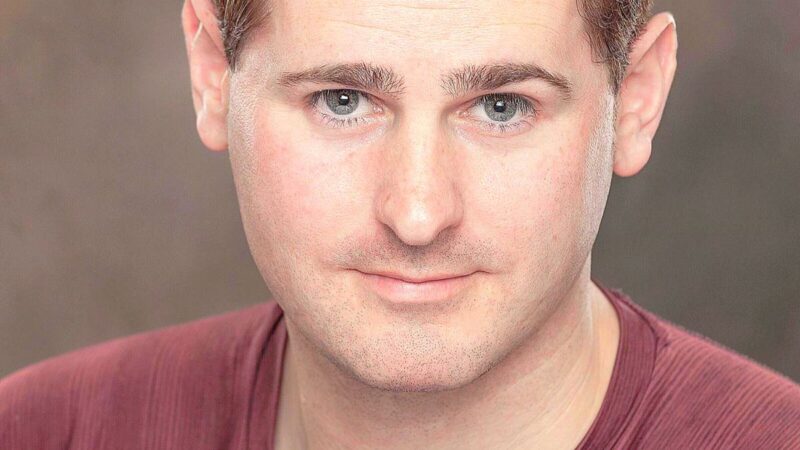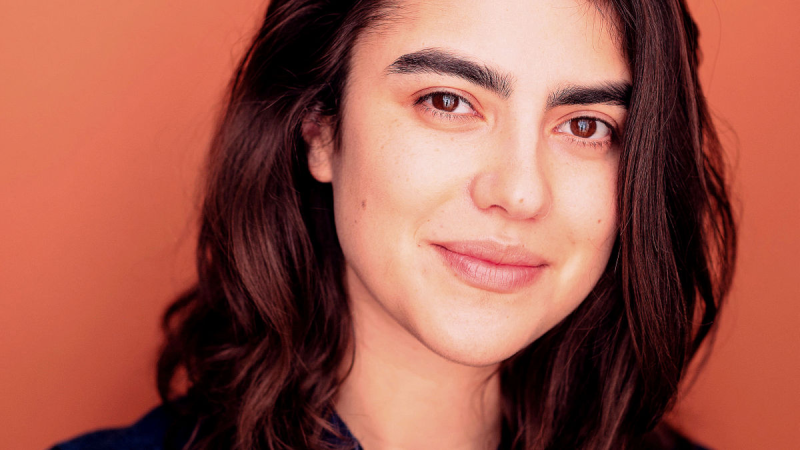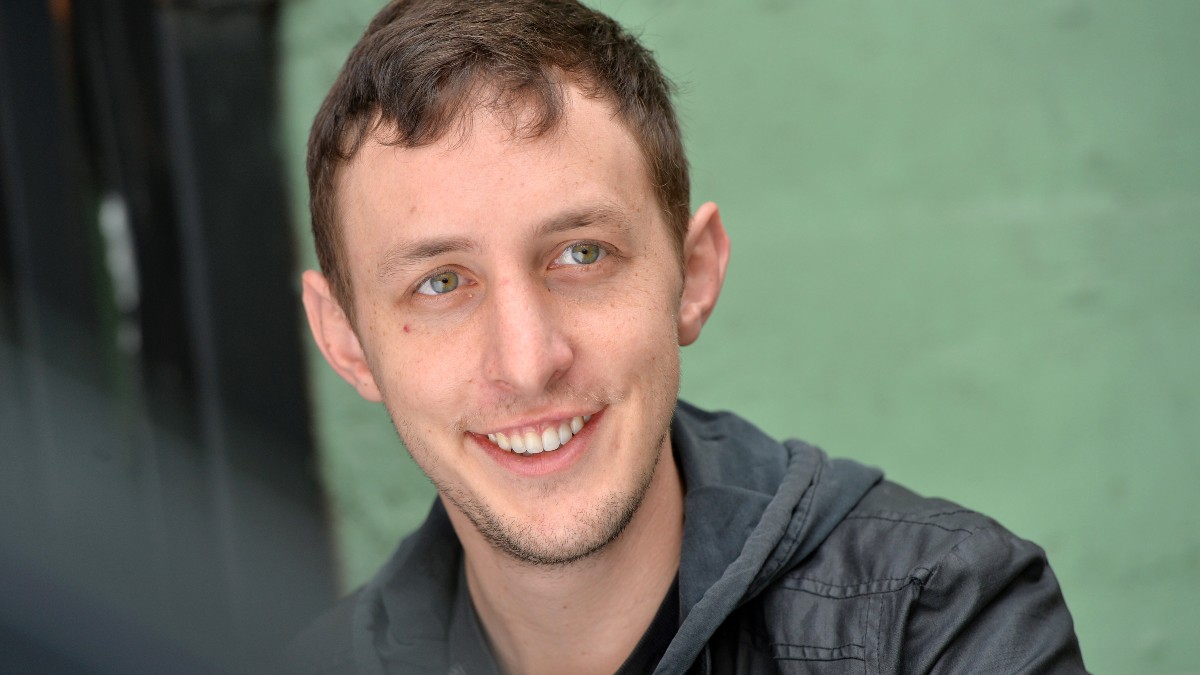
An Industry Case Study
Narrative | Dramatic Features
Film Name: Hotter Up Close
Genre: Romantic Comedy
Length of film: 15:30
Date: 06/13/22
Director: Leland Montgomery
Producer: Carolyn Manetti
Executive & Creative Producer: Leland Montgomery, Christopher Matias Aguila
Writer: Matias Agulia
Cinematographer: Michael Basha
Editor: Steven Markowitz & Ya-Ting “Itchy” Yang
Composer: Elana Belle Carroll
Production Company: N/A
Budget: $45,000
Financing: Self-financed
Shooting Format: Alexa Mini
Screening Format: 16:9
World Premiere: Outshine Miami
Awards: 2 – Best Short Viewers Choice, SeriesFest Audience Award Winner
Instagram: @hotterupclosefilm
The Official Trailer for “Film”
Watch The Trailer for Hotter Up Close directed by Leland Montgomery
A Short Biography of Leland Montgomery
Leland Montgomery is an LA-based writer, director, and content creator. He graduated from USC School of Cinematic Arts with an MFA in Film Production. Layland has had his films screened at a variety of top-tier festivals including Fantasia Fest, Hollyshorts, Outfest, Calgary International, LACMA’s Young Director’s Night, and more.
His thesis film Black Cat in a Dark Room won the Wes Craven Award for best horror short and is currently available on ALTER. In addition to his narrative work, he has also worked on in-house branded video teams. In this capacity, Layland has written scripts, overseen production, and given creative guidance. Whether it’s narrative filmmaking or marketing, he is a passionate and thoughtful creator who aims to create emotionally compelling work.
The Leland Montgomery Interview
indieactivity: What is your film about?
Leland Montgomery (LM): Hotter Up Close is a gay romantic comedy. It’s about learning to love yourself despite your insecurities and realizing that good things will begin to come your way once you accept yourself for who you are.
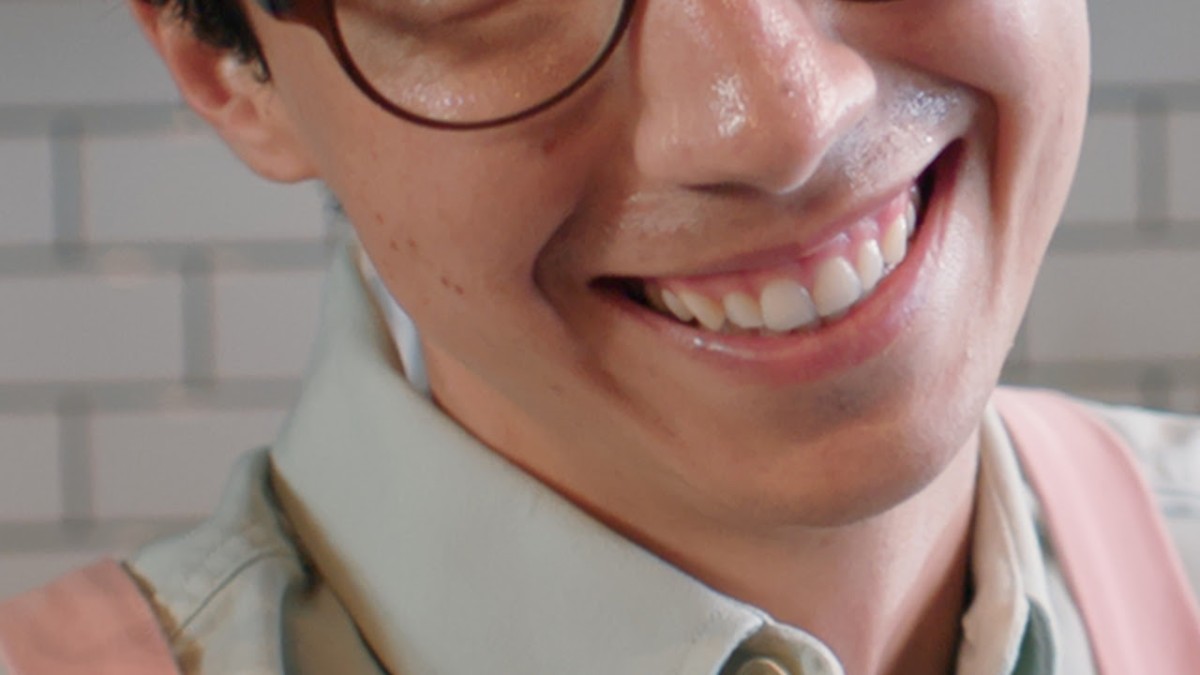
Tell us about the festival run, marketing, and sales?
Leland Montgomery (LM): We’re still in the early stages of our festival run. Still, so far, we’ve been lucky enough to attend some really excellent programs. SeriesFest in Denver was absolutely incredible, as was Dances with Films. We’ve also been lucky enough to win a few awards. At SeriesFest, we won the Audience Award, and at Reel Out Charlotte, we won the Best Shorts award.
Give the full Official Synopsis for your film?
Leland Montgomery (LM): Hotter Up Close is a queer coming-of-age story about a young slacker named Chris on the verge of turning 30. He has just been dumped by his ex-boyfriend Brad, who has decided he can do better than poor ol lil Chris. Despite not wanting to celebrate his milestone birthday, Chris and Dana are invited to a gay pool party by Chris’s new crush Aiden. Despite being convinced that Aiden couldn’t possibly like him, Chris is persuaded to attend. When he arrives, he is surprised to see that Aiden already seems to have a date… a mysterious speedo boy who looks like a better-looking version of Chris.
The situation is only compounded when Chris realizes that his ex-boyfriend Brad and Brad’s new lover Indigo are also at the party! They have an awkward exchange, and Chris suddenly realizes that Brad’s opinion of Chris doesn’t matter. Maybe it never mattered.
Bolstered by this newfound confidence, Chris decides to look for Aiden. He finds him relatively quickly, and after a few coy exchanges, it becomes clear that Aiden is just as interested in Chris. When Chris asks why Aiden says that it’s because Chris is different from all the shallow muscle boys that Chris has felt insecure around. They kiss and decide to leave the party together, heading off into the sunset.
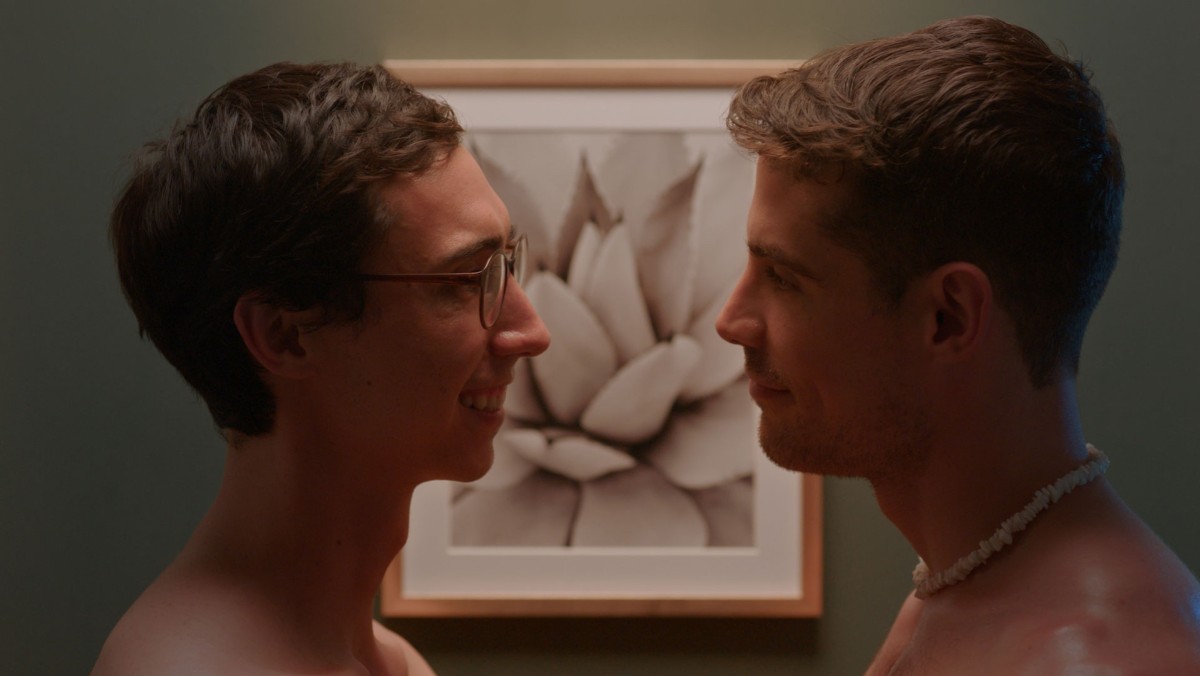
Development & Financing?
Leland Montgomery (LM): There’s a joke in the gay community that you’re old once you’ve hit 30. This is a joke both because it’s ridiculous and because, in many LGBTQIA spaces, it’s true – especially in Los Angeles.
Christopher Matias Aguila – the writer and Hotter Up Close star–is a constant collaborator. When he started writing the script. We were both on the verge of turning 30, and the prospect of a new decade felt especially scary. We wanted to create a film where we could explore our insecurities and poke fun at feeling over the hill.
As we continued developing the script throughout the pandemic, we also realized we wanted something joyous. There was so much heaviness in the world that we didn’t want something that felt cynical or even unkind – which was definitely a balance given that most of our characters have a certain degree of shallowness.
When we wrapped principal photography, we had a slightly different ending than we have now. It was different enough, in fact, that we decided to go back and reshoot it. The original end was slightly more cynical and flippant. When we realized that we wanted to lean into the piece’s joy and positivity, we concluded that we had no choice but to go back for reshoots.
In terms of financing, we decided early on that we wanted to self-finance. We both had a strong vision for the film and wanted to completely control how the film turned out. Given that, it made the most sense for us to serve as EPs and combine resources to find funds.
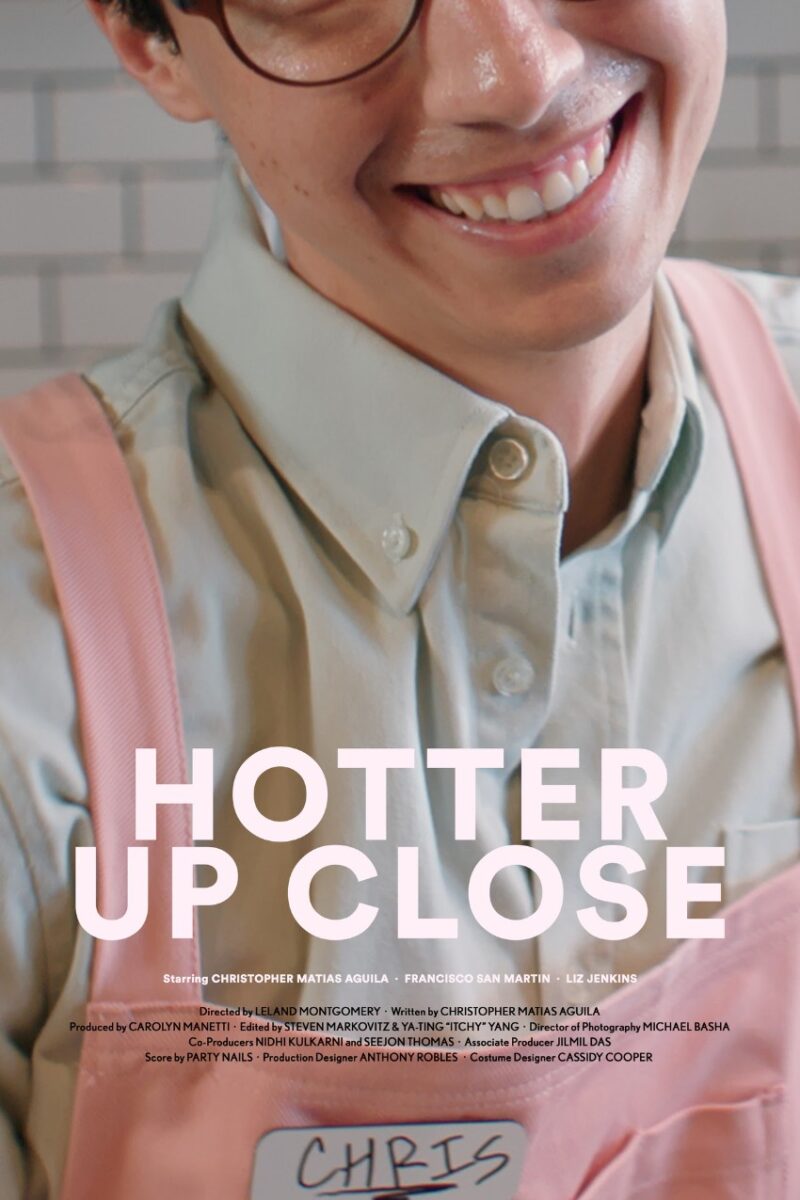
Production?
Leland Montgomery (LM): Getting this film into production was… not easy. The last two and a half years have felt deeply traumatic nationally. On a personal level, the quarantine made it nearly impossible to make anything. When the vaccine came out, and cases started to taper off, we began to think about the prospect of shooting something.
We started pre-production right after the vaccines brought the cases down. Still, our principal photography occurred during the height of delta, which was also at the height of summer. This was in August, and we had done about four or five months of pre-production.
Despite that preparation, we were still contending not just with a pandemic but also large scenes, multiple extras, and height averaging around 100 degrees a day. We shot for four days in multiple locations. The park scene was at Lake Hollywood, an iconic tourist destination. The streets are at a massive incline, so bringing the grip and lighting truck up to set was incredibly nerve-wracking.
What’s more, once we started shooting, we had to deal with out-of-town visitors who had never seen anyone make a movie before. We were a relatively small operation, but our cast and crew still numbered in the thirties or forties, so everyone kept coming up to us to ask what the project was.
When we wrapped, it felt like a miracle. During the editing process, however, it became clear that we would need to go back and grab pickups.
I remember seeing the first cut and being so devastated. This is relatively normal for my process, but those early iterations felt long, clunky, and unfunny. There was a test screening about halfway through the process, and when no one laughed, we realized we had to go back and make some adjustments.
We needed to get more footage of Chris on his own and a few story pieces to make the tone more consistent. It took about two months of pre-production before our pickups. Still, as the date approached, Omicron reared its ugly head, and we had to make even stricter accommodations to manage the new phase of the pandemic.
We shot two days of pickups, including a rather extensive VFX sequence at the pool party. Initially, when we had shot, we had very few extras, and when we put the edit together, it became clear that we would need more.
We returned to our original location, covered the whole thing in green paper, brought in about 2 dozen “hunks,” and shot a background that we then dropped into the edit digitally. I (and my producers) were skeptical that it was gonna work, but it was barely noticeable.
When we put all our new pieces into the edit, it worked much better. We did another test screening, and the results were much stronger. Throughout the past year, the production’s consistent saving grace was our fantastic cast and crew. They were so patient, so flexible, and so dedicated. Without them, this would have been impossible.
Festival Preparation & Strategy?
LM: The biggest thing we did to prepare for our festival run was to get specific about which festivals we wanted to submit to. There wasn’t a program we submitted to that we had lukewarm feelings about – each submission was incredibly thought out and important to us.
We started to put together our submission list before we even shot the film. I’ve done the festival circuit before, so I already had some idea of the pitfalls that sometimes arise during a festival run. One of those pitfalls is not understanding where your film fits. We wanted to be sure that we were targeting organizations we felt were a good fit.
The Release?
LM: We haven’t released the film yet – although we are already in talks with a couple of distribution platforms. Our goal is to release the film in June 2023
Advice from the Filmmaker?
LM: I would say that my biggest piece of advice is that it takes a village. As I alluded to earlier, this movie would not have been possible without the generosity of dozens of folks. This process taught us that if you make something from the heart, the right people will want to be a part of it.
From the minute we started our first pre-production meeting, it became clear that this process would be fast-moving and intense. We needed to learn how to lean in our trust our instincts. That became especially true as we struggled with the edit.
One of my biggest takeaways is that the folks helming any artistic project need to be confident in their choices. Comedy is more difficult when you overthink it. Trusting that everyone can and will do their jobs at the height of their ability was one of the biggest takeaways for us.
Tell us what you think of the Case Study for Hotter Up Close. What do you think of it? Let’s have your comments below and/or on Facebook. Or join me on Twitter.
Follow Leland Montgomery on Social Media
Website
IMDb
Instagram
Vimeo
MORE STORIES FOR YOU

